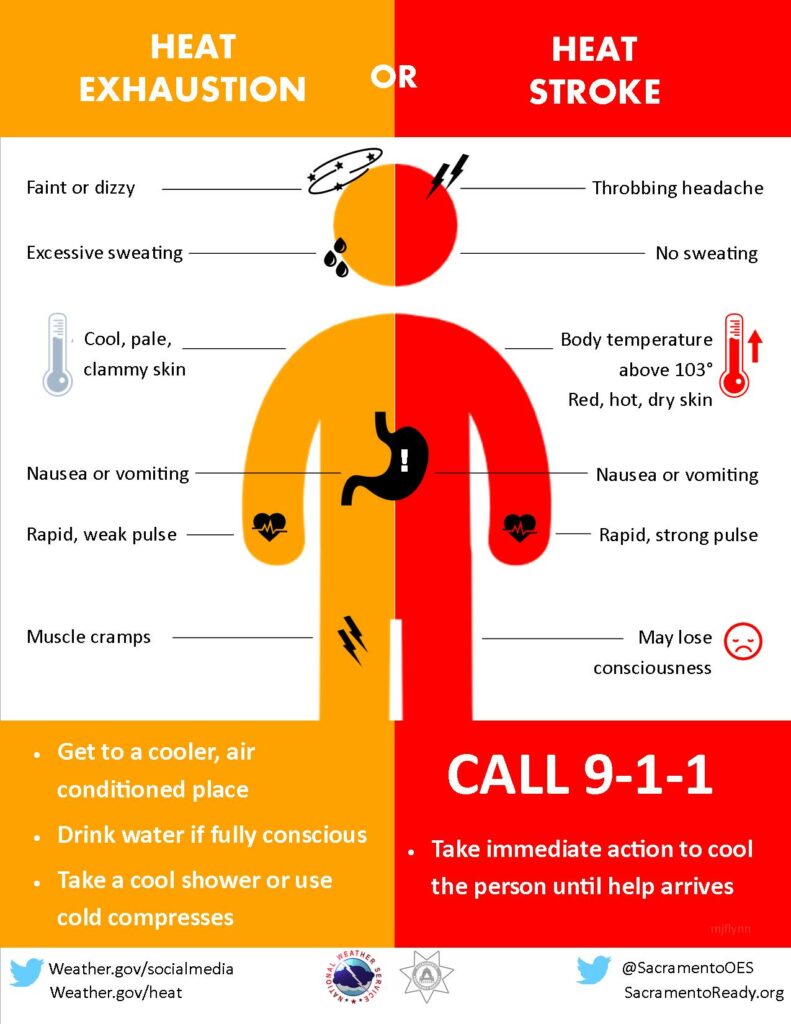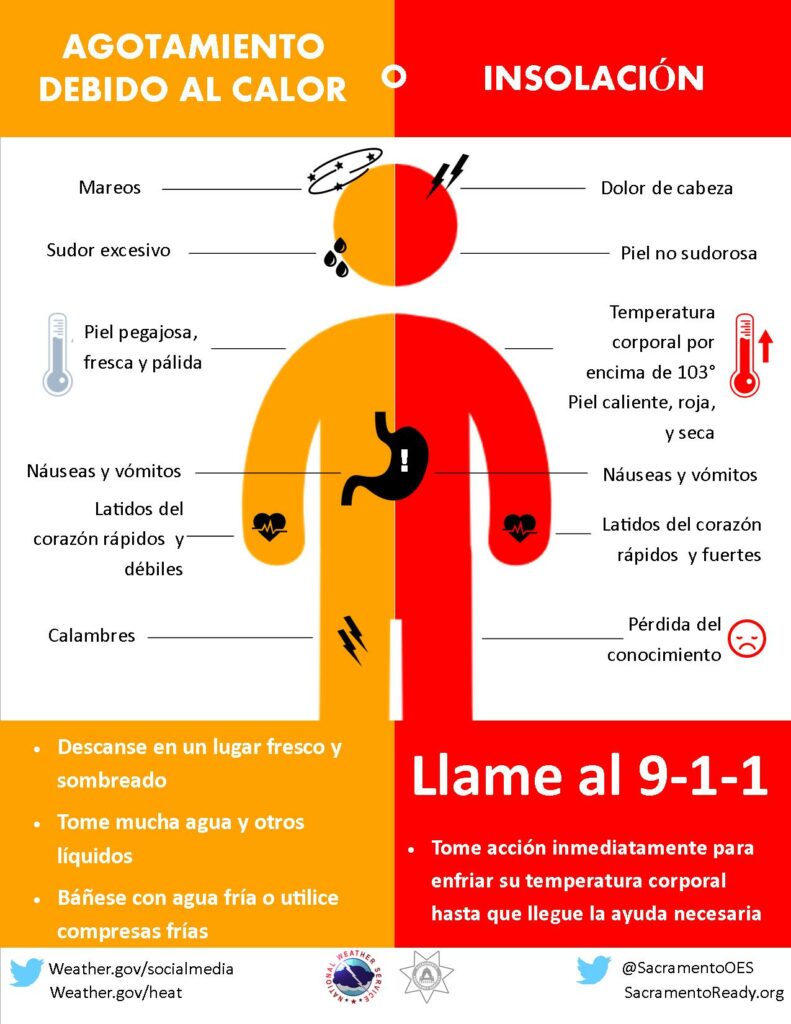According to the National Weather Service, excessive heat will develop this coming Sunday, August 11, 2019 and last through early next week. High temperatures across the region will be reaching the mid to upper 90s. These high temperatures combined with humid air, will push heat index values up between the 105-110 degrees range on Monday and Tuesday.
If you work outdoors or have any kind of outdoor activities planned for next Monday and Tuesday, please try to do those in the early part of the day and stay hydrated as much as possible, by drinking plenty of water. Also, schools should be cautious with outdoor sports and activities during these times.
According to the National Weather Service, theses are the signs of Heat Stoke and Heat Exhaustion:
Symptoms:
Heavy sweating
Weakness
Cool, pale, clammy skin
Fast, weak pulse
Possible muscle cramps
Dizziness
Nausea or vomiting
Fainting
First Aid:
Move person to a cooler environment
Lay person down and loosen clothing
Apply cool, wet cloths to as much of the body as possible
Fan or move victim to air conditioned room
Offer sips of water
If person vomits more than once, seek immediate medical attention.
Symptoms:
- Altered mental state
- One or more of the following symptons: throbbing headache, confusion, nausea, dizziness, shallow breathing
- Body temperature above 103°F
- Hot, red, dry or moist skin
- Rapid and strong pulse
- Faints, loses consciousness
First Aid:
- Heat stroke is a severe medical emergency. Call 911 or get the victim to a hospital immediately. Delay can be fatal.
- Move the victim to a cooler, preferably air-conditioned, environment.
- Reduce body temperature with cool cloths or bath.
- Use fan if heat index temperatures are below the high 90s. A fan can make you hotter at higher temperatures.
- Do NOT give fluids.
For more information you can visit https://www.weather.gov/safety/heat-illness or
For more information on all these topics, see the Centers
for Disease Control and Prevention site.






